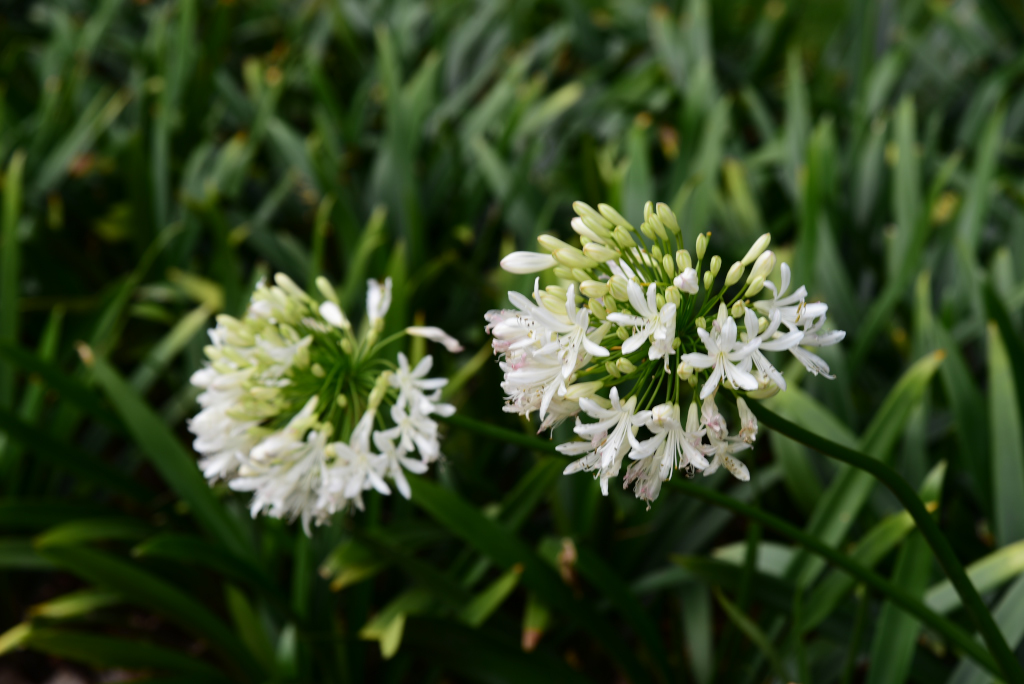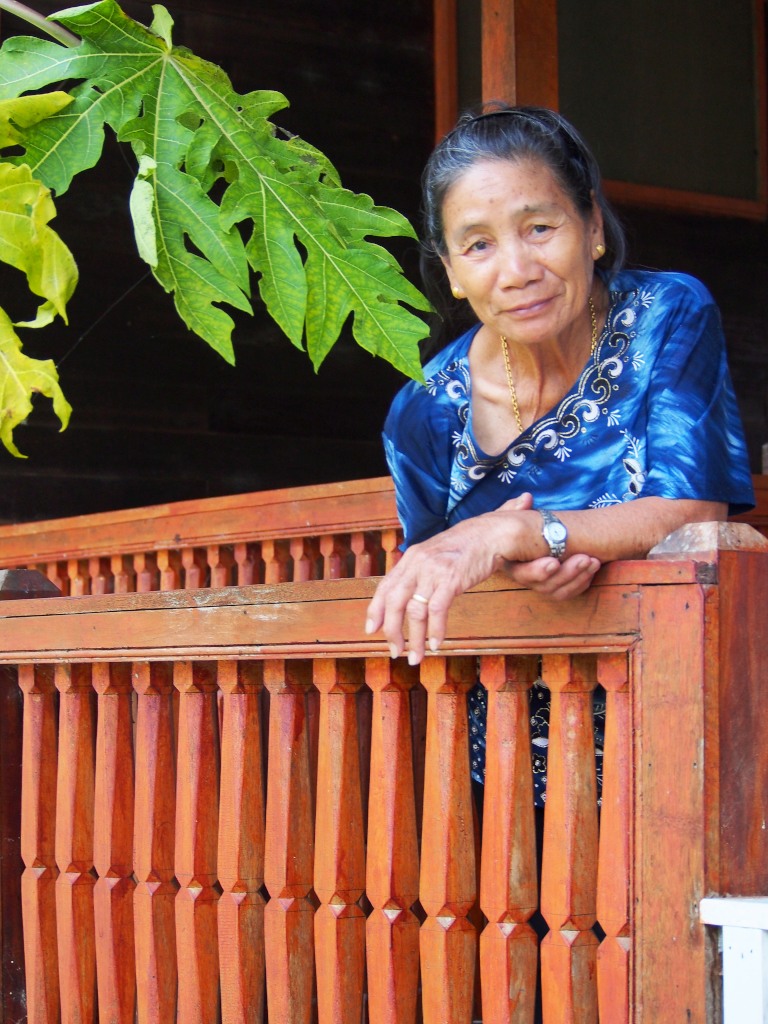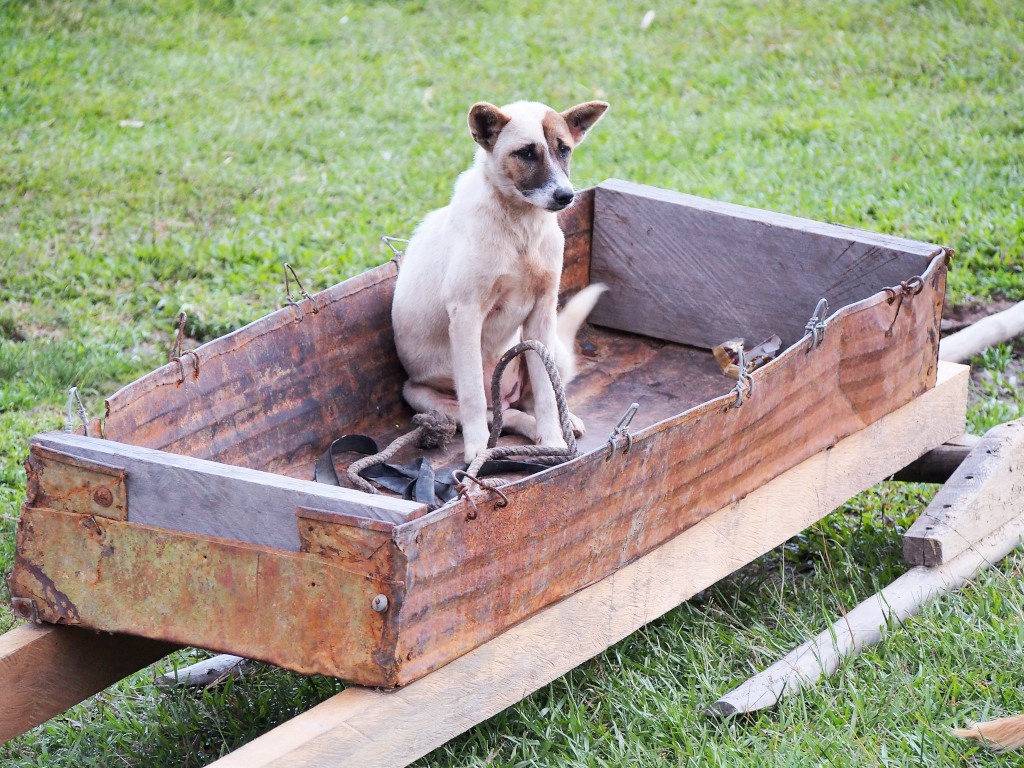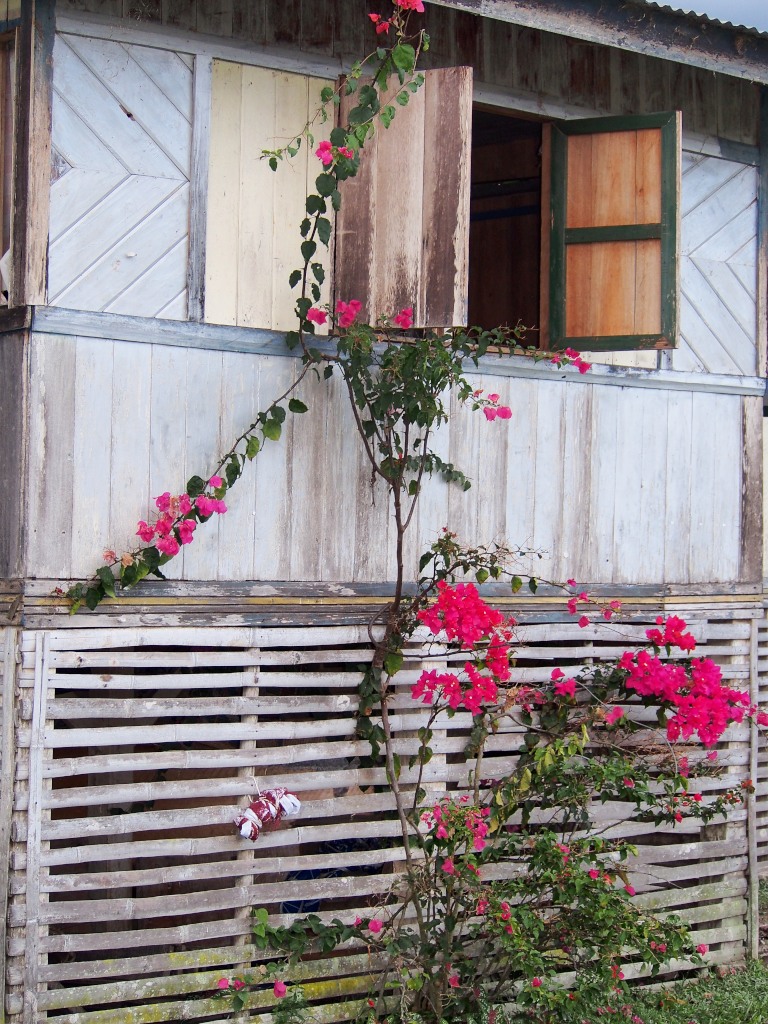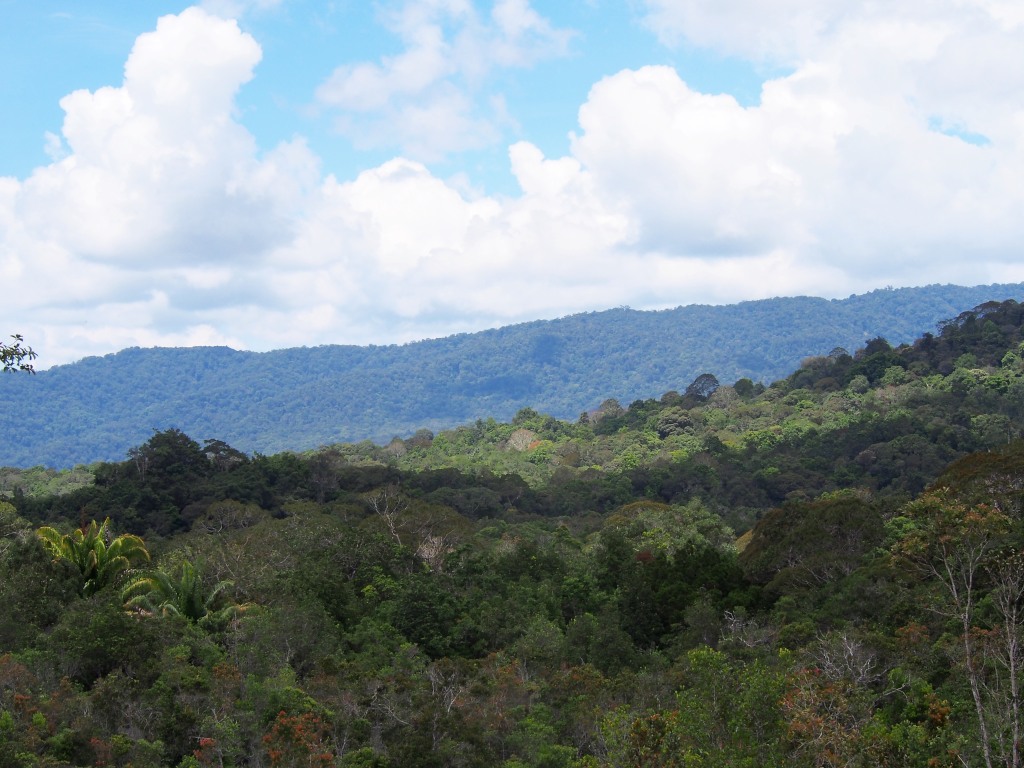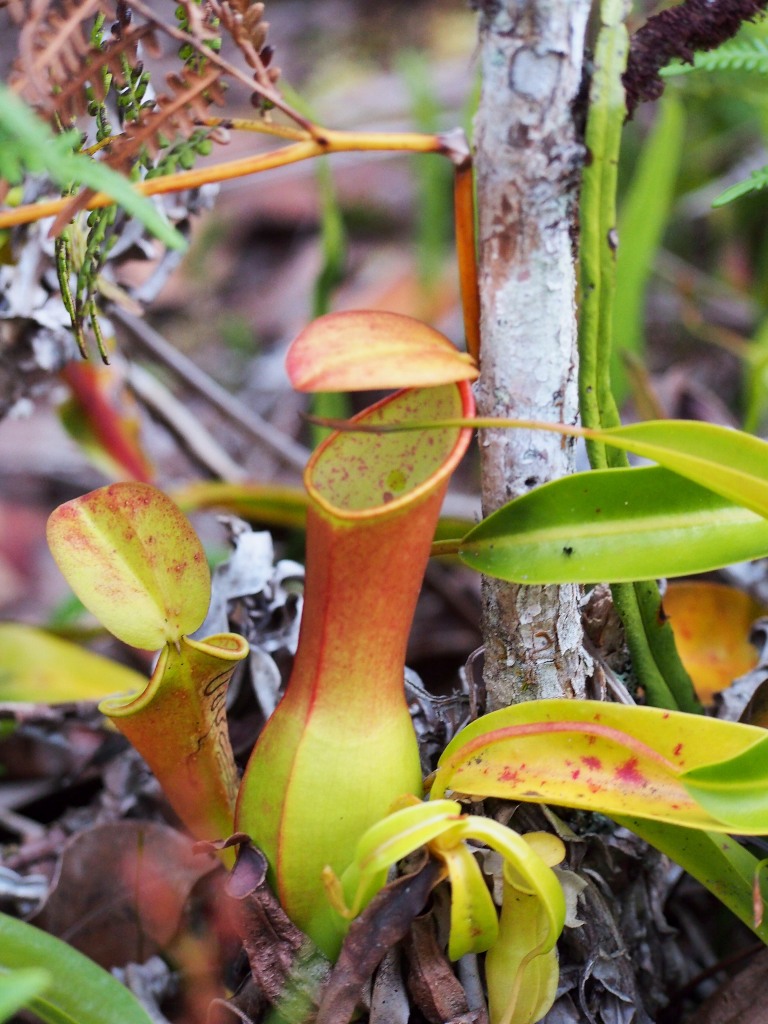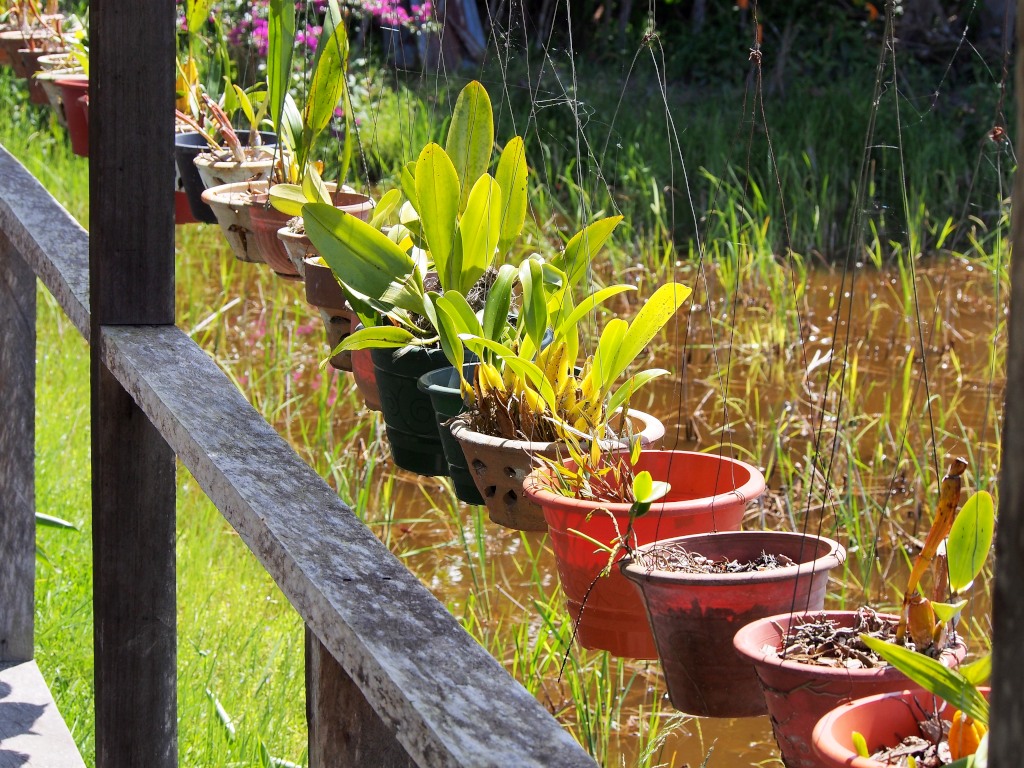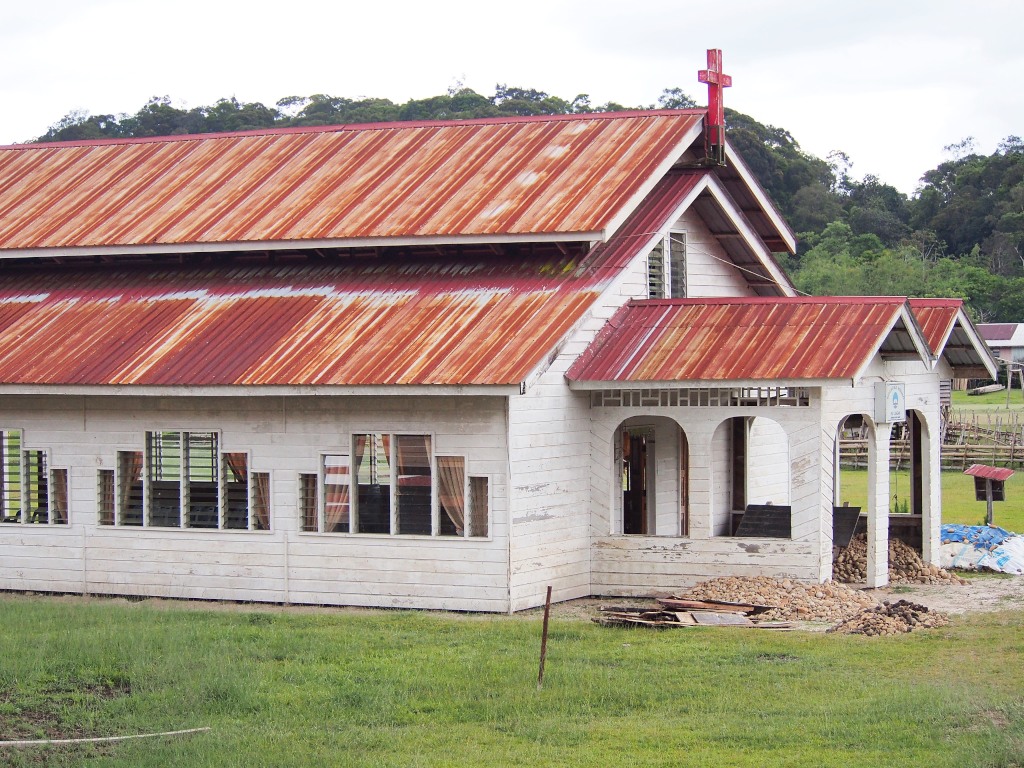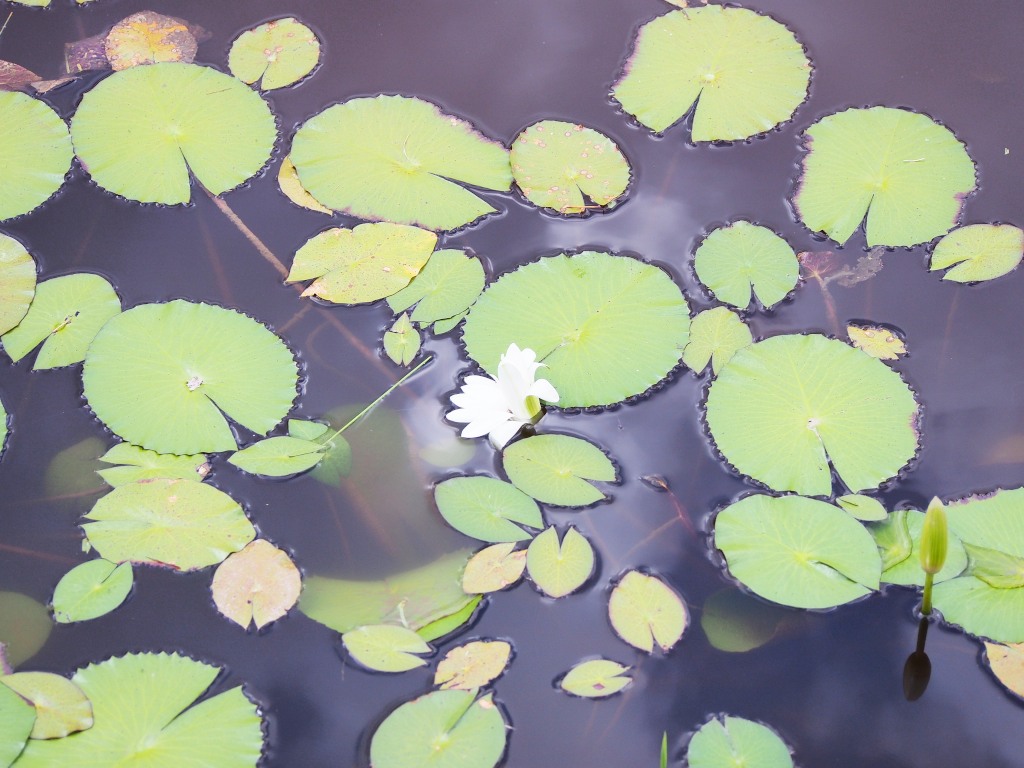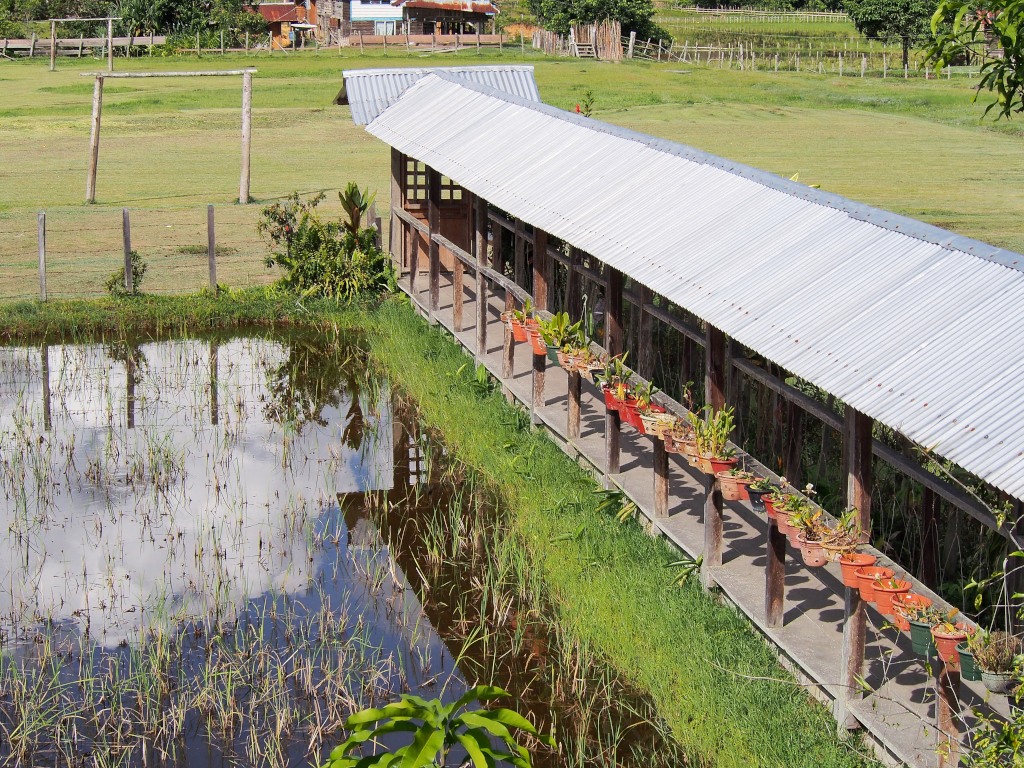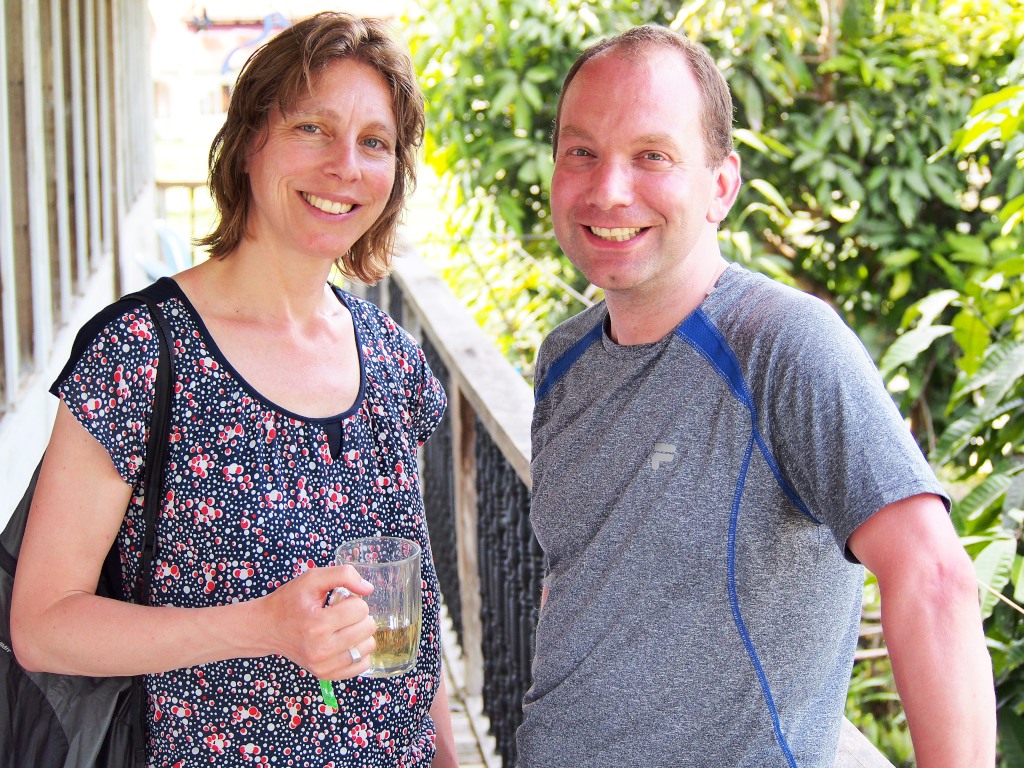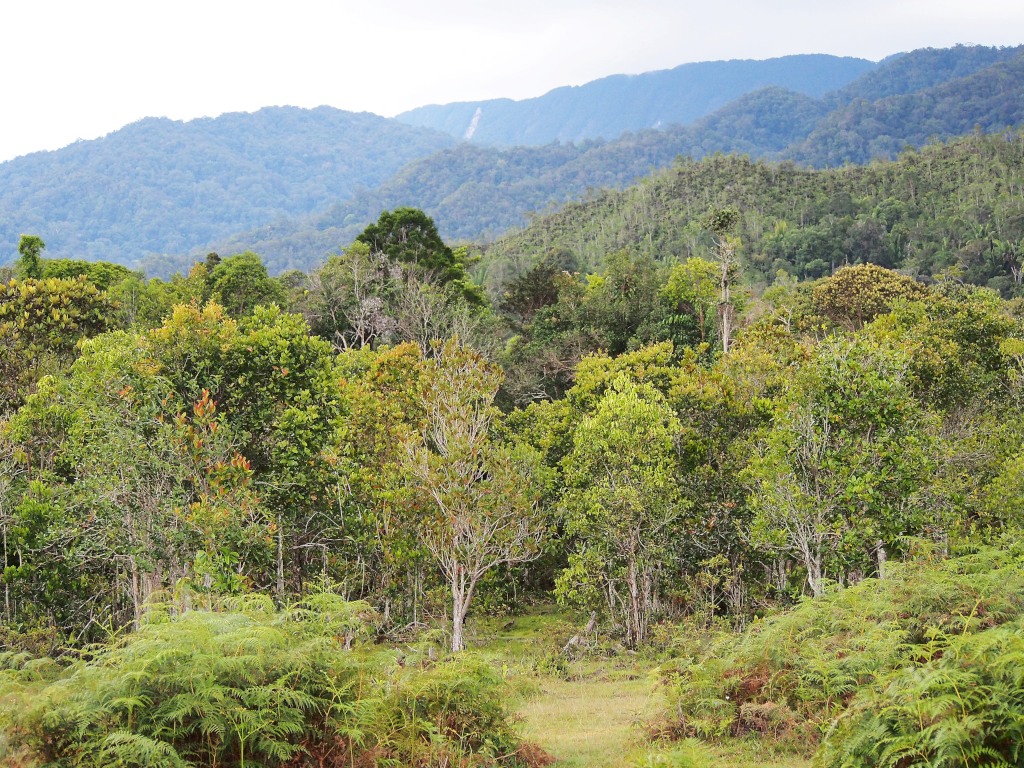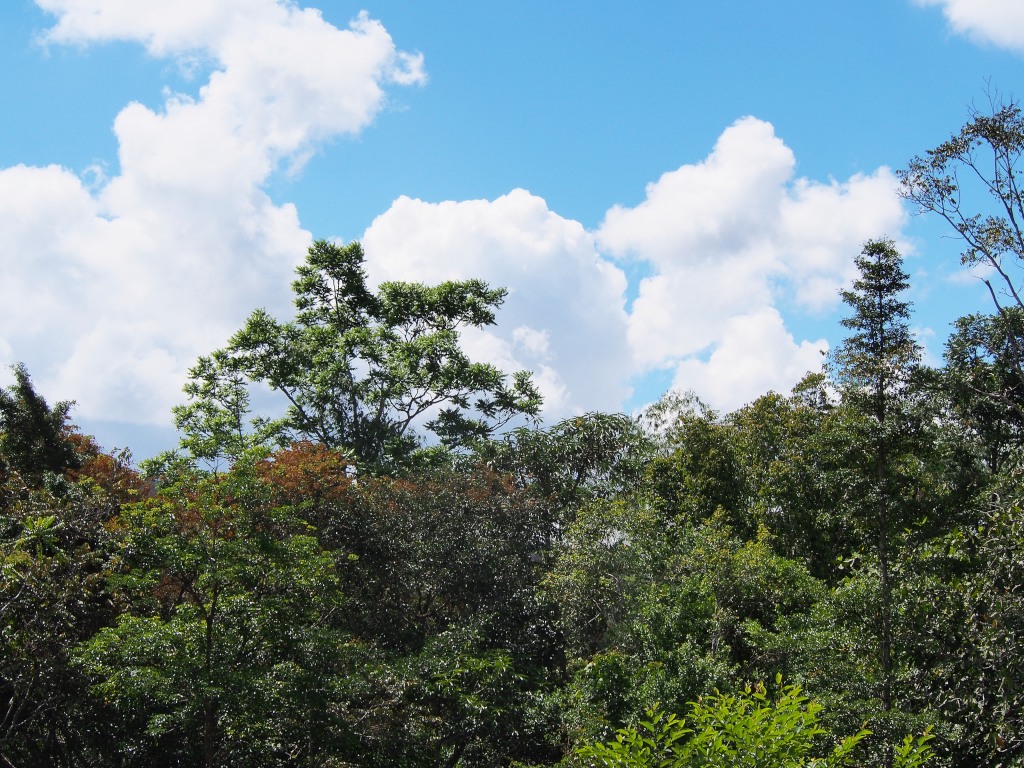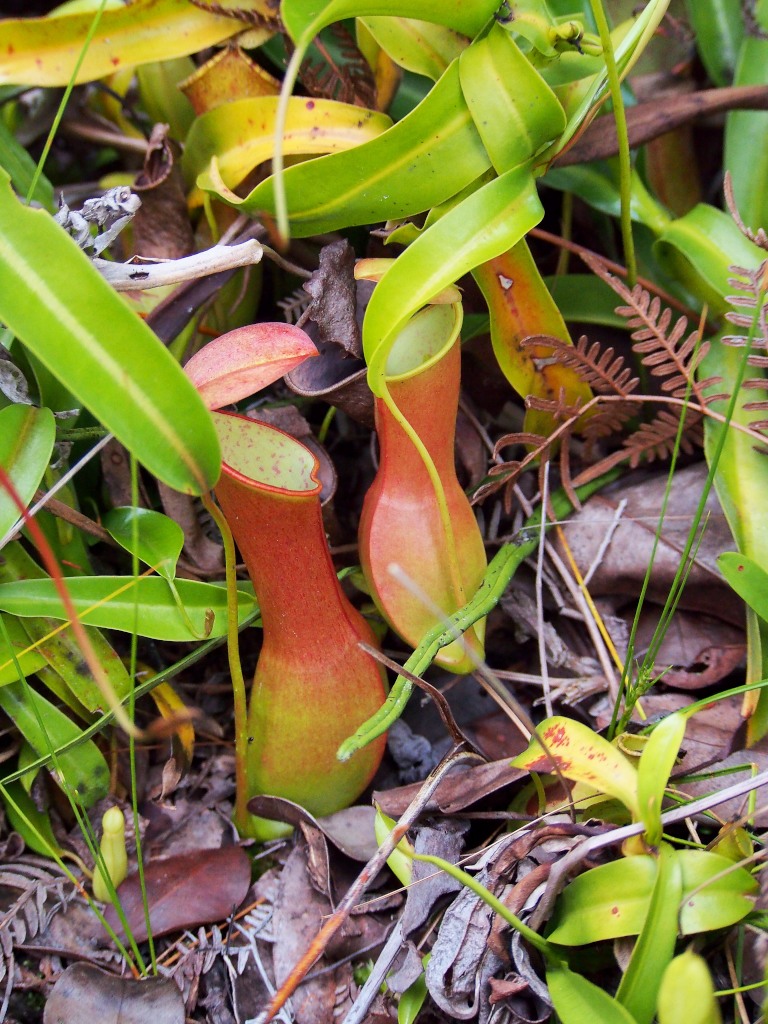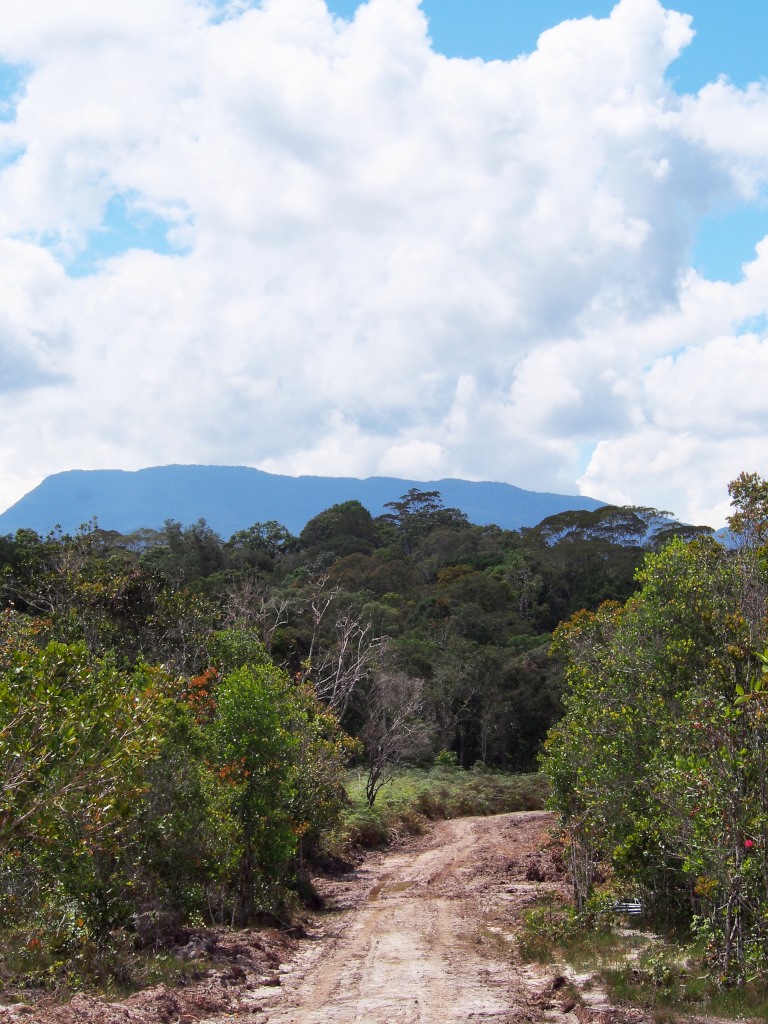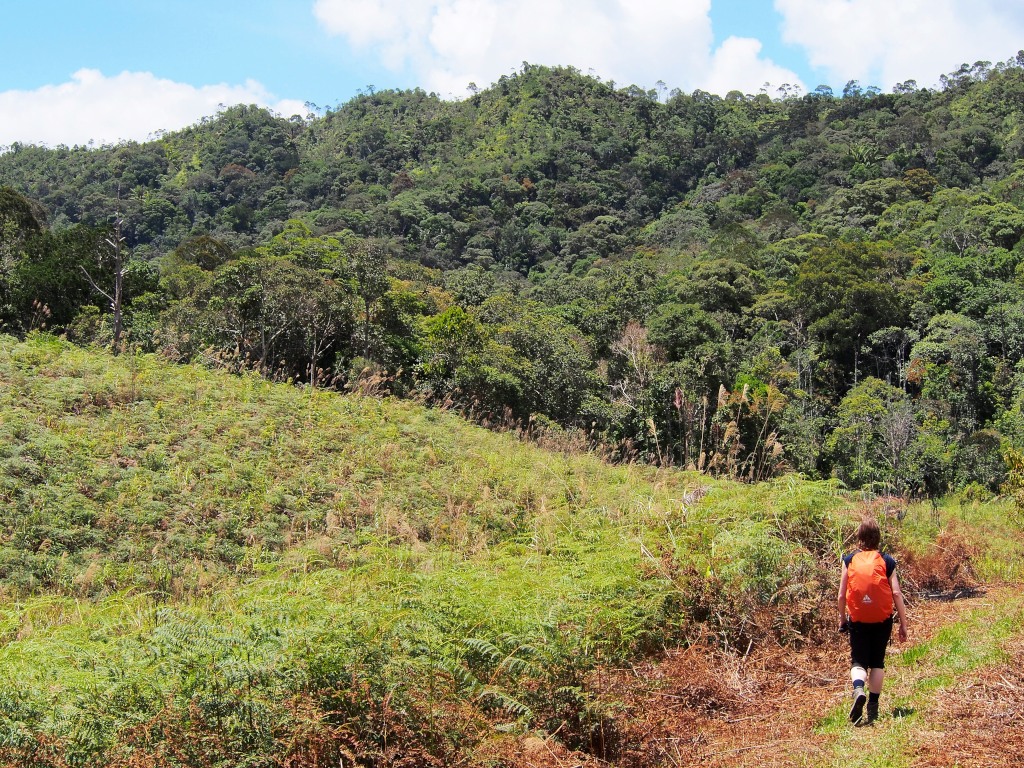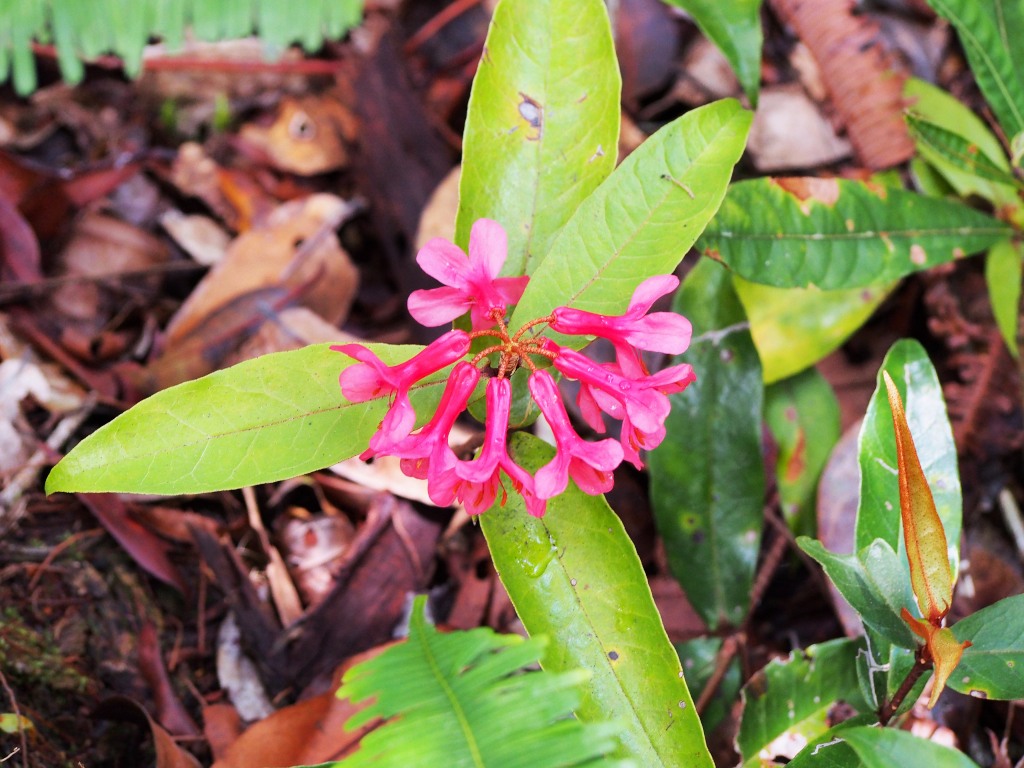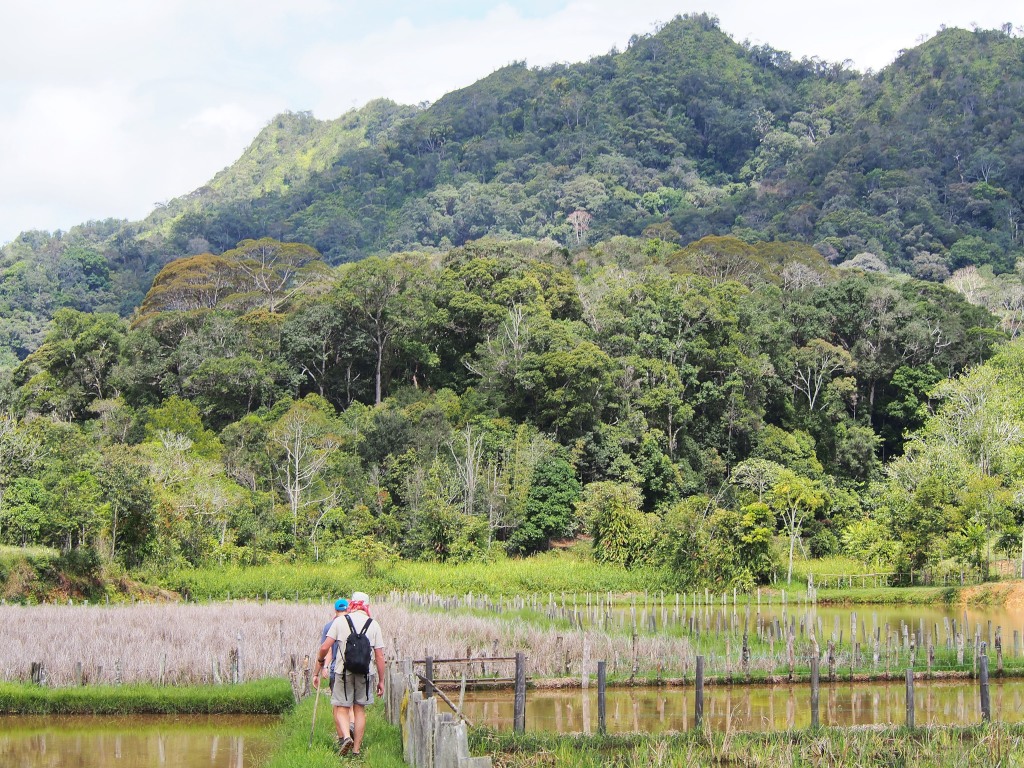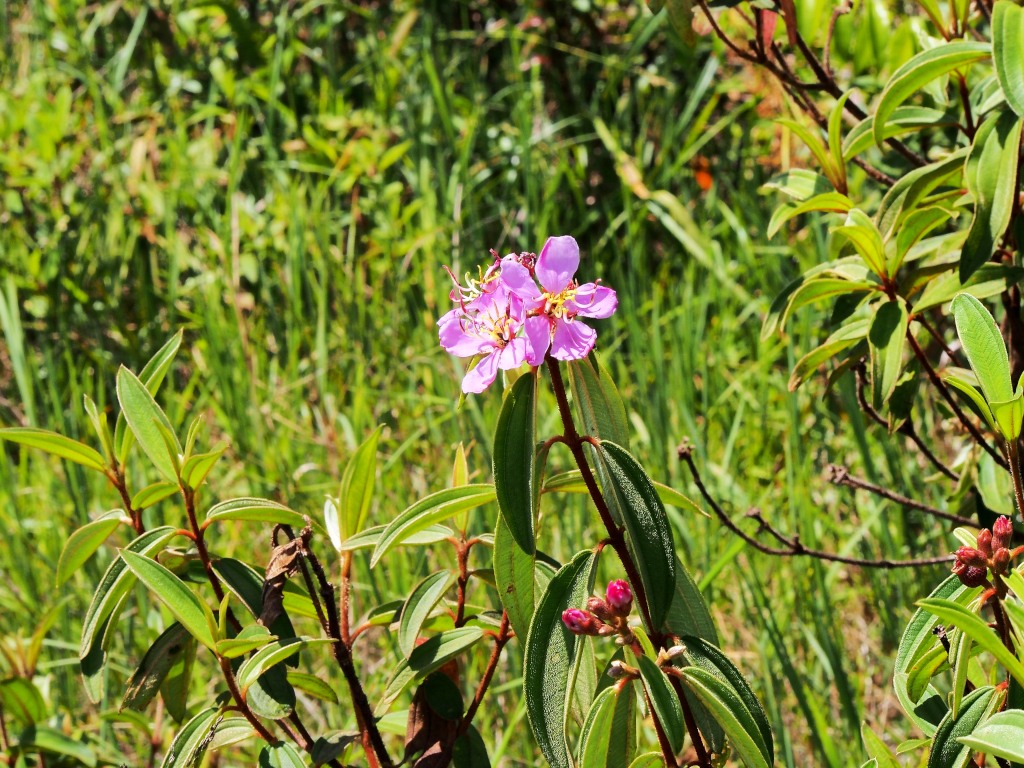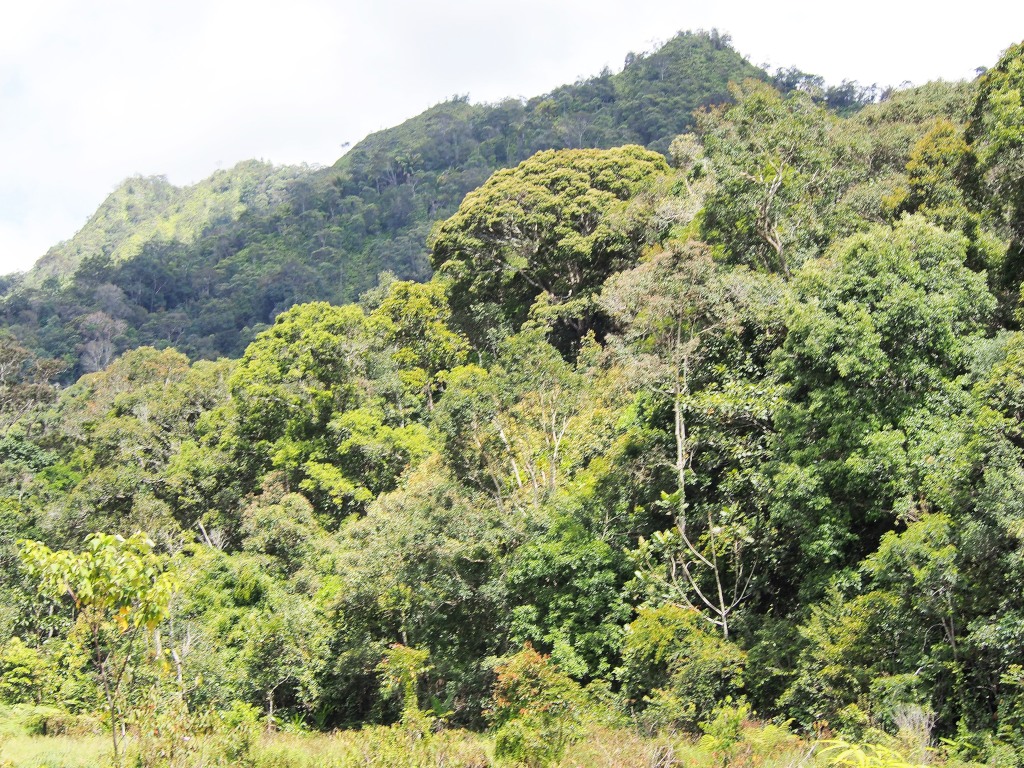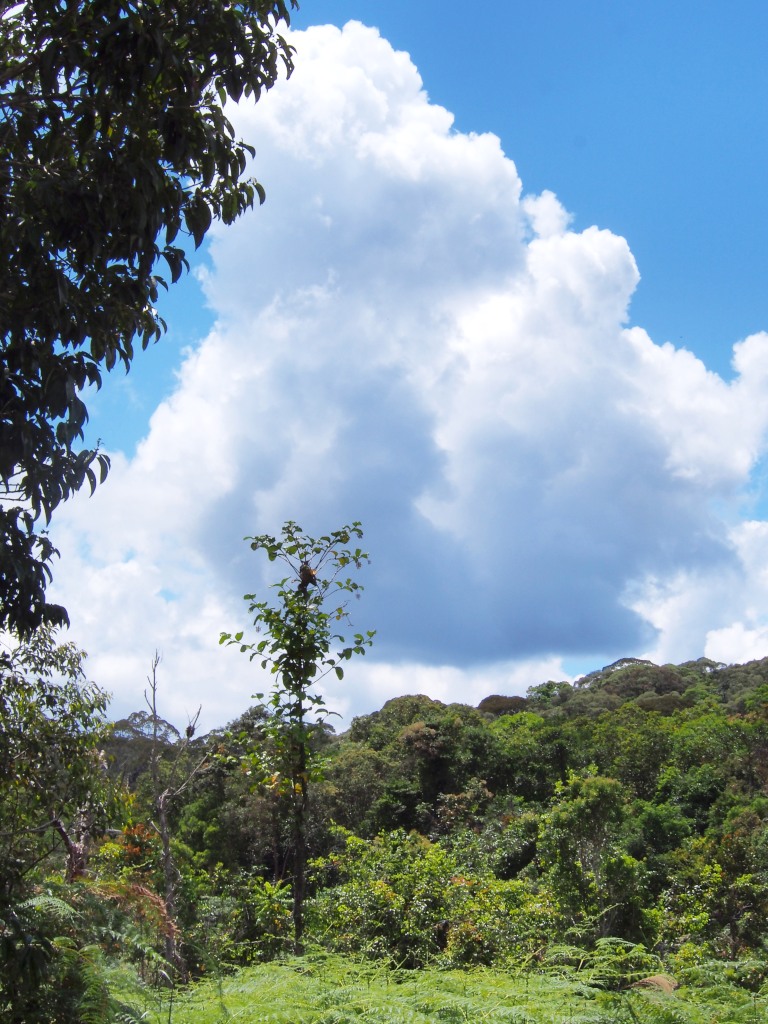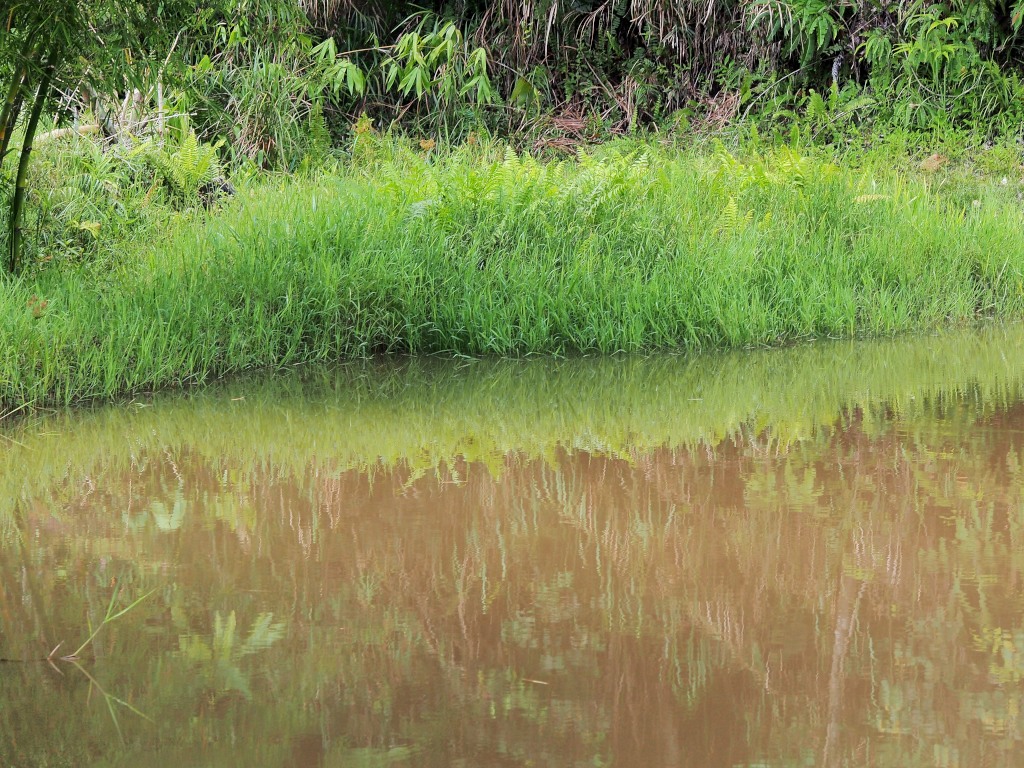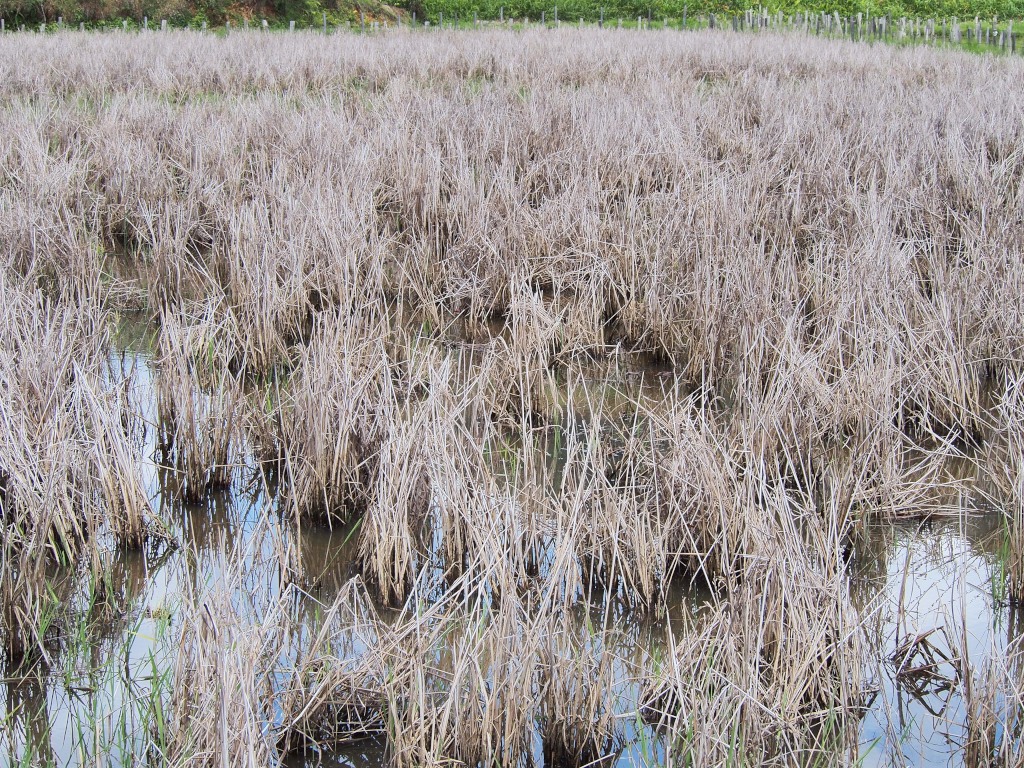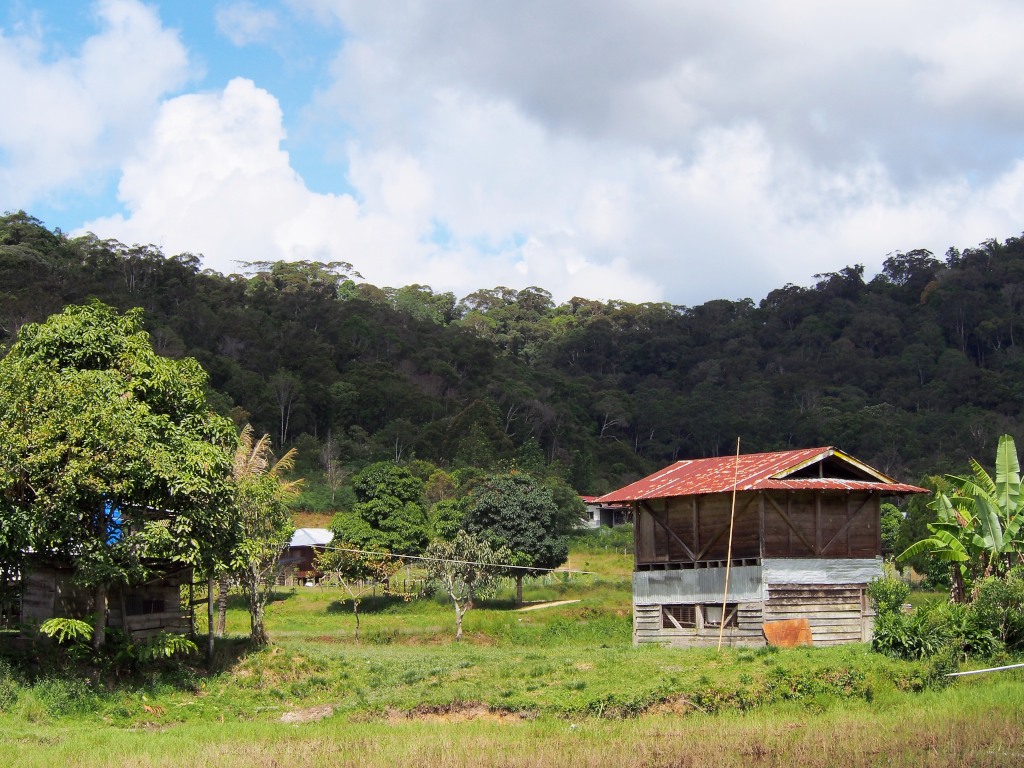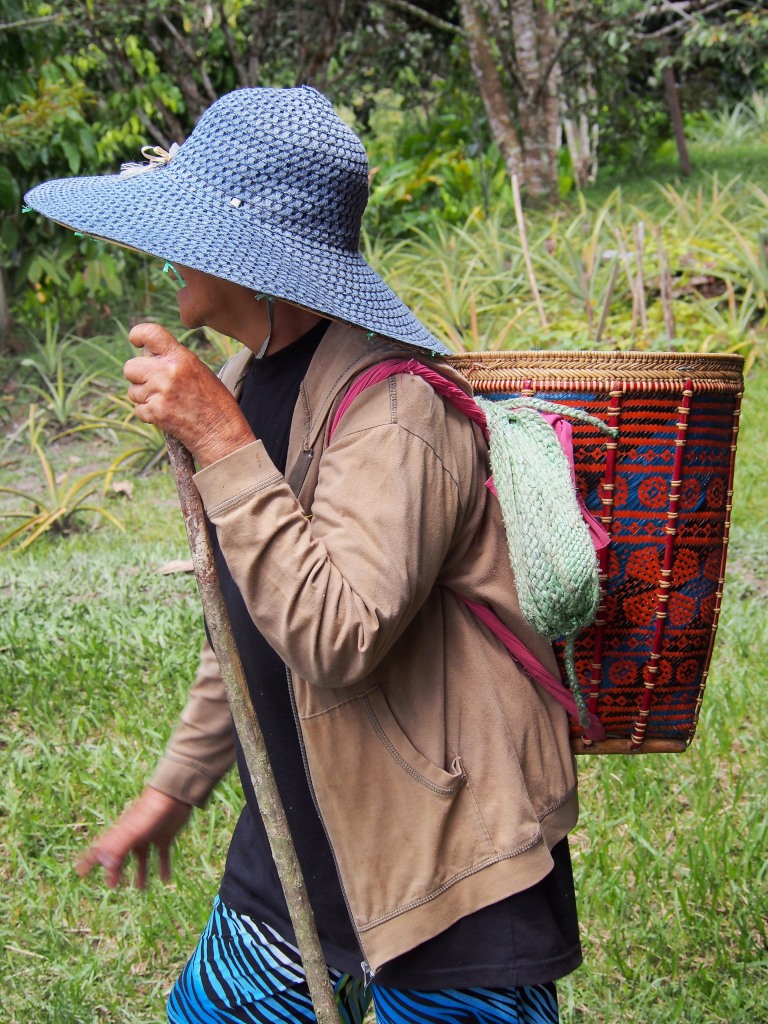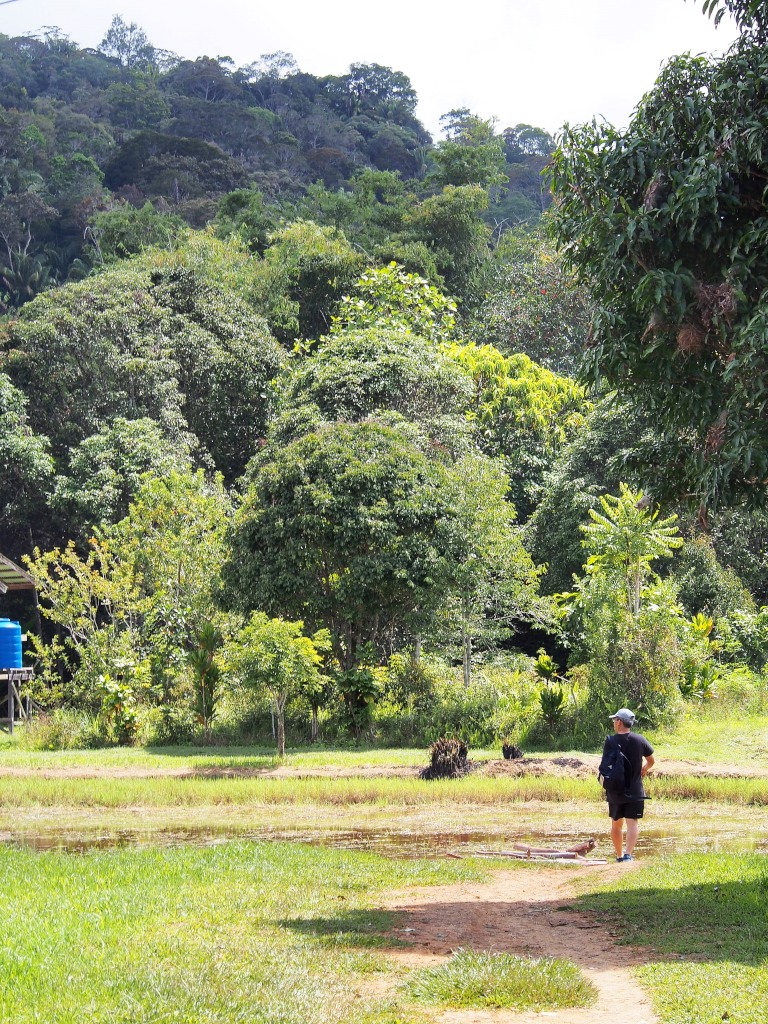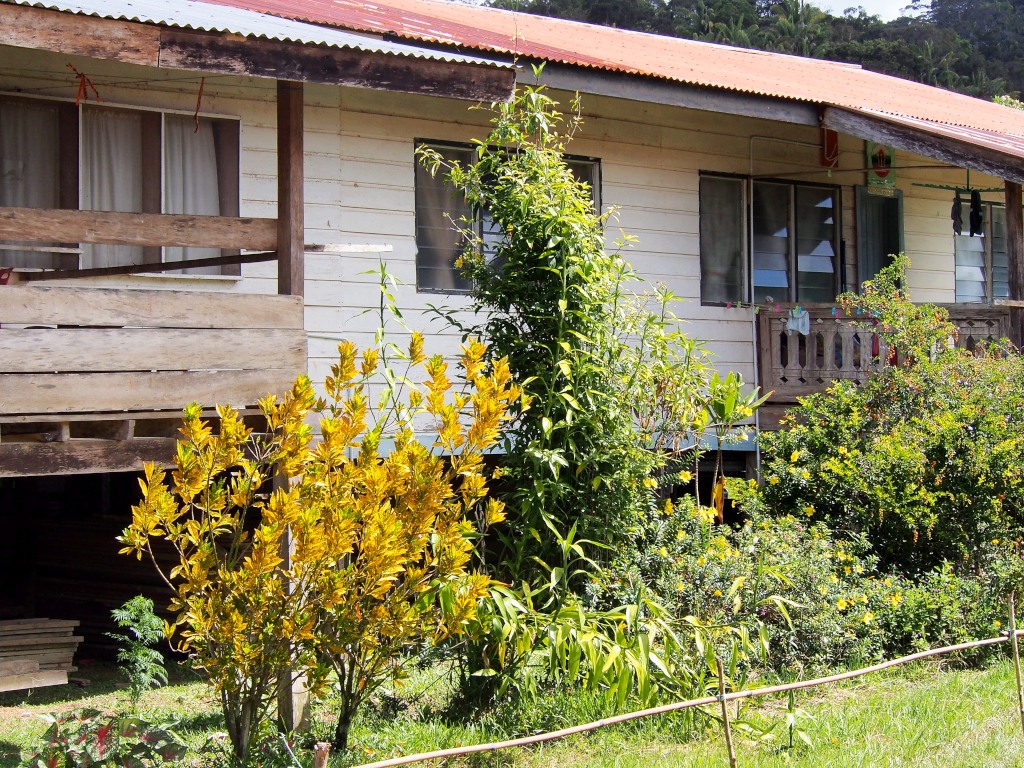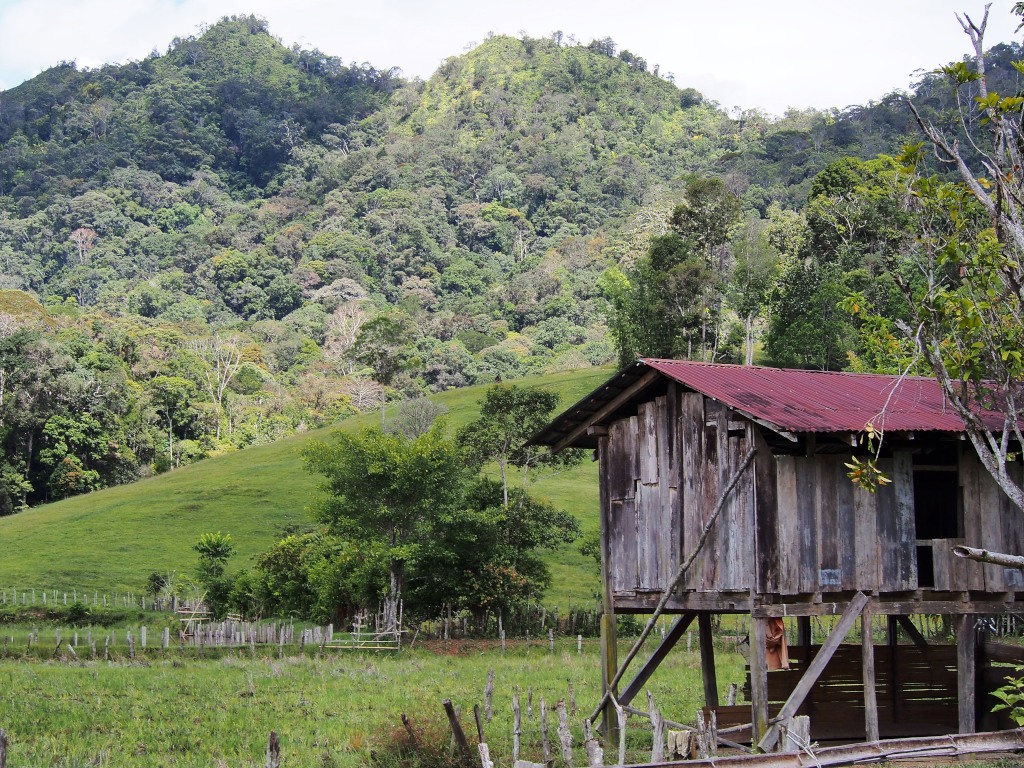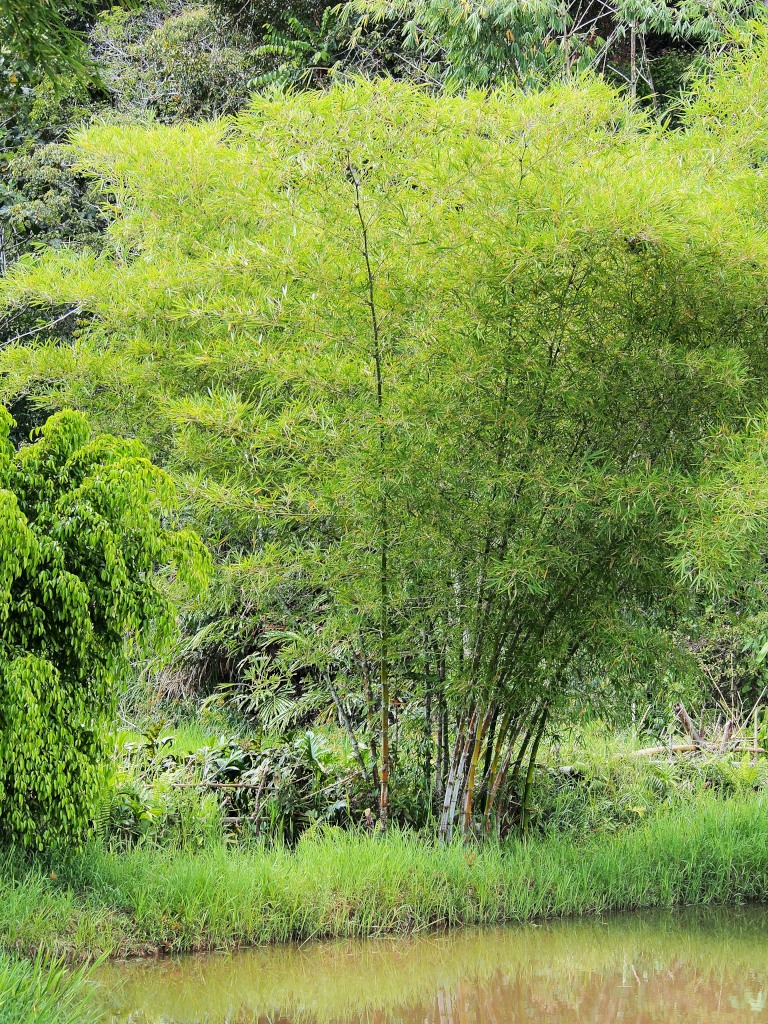May 13th, 2015
I feel slightly queasy waking up on the hard bed as the first rays of dawn peer through my curtained windows. I am too tired to want to get up, and sense that something in my world may be slightly wrong. But that is probably largely due to taking on too much, for too long, having too many diverse stresses, and never being sure what my next move should be. Although having said that, I am not sure many people slogging away in day jobs would cry me a river a result.
My immediate challenge involves trying to figure out what time it is, which takes getting out bed and going downstairs, as the camera clock seems to reset every time I remove the battery to charge it. I open up a narrow flap of the curtains to see the soft rays of the morning shimmering through the mists on the distant hills and reflecting on the pond in front of the house.
The clock in the kitchen indicates that it is quarter after 7, and breakfast has not yet been served, although the owner of the Batu Ritung guesthouse is now engrossed in earnest discussion with Pasha and Alex about the realities of maintaining the integrity of their land. He is not optimistic as to the future, fearing that most of the wild space in Sarawak will completely vanish.
He dismisses the wild forests I saw from the airplane, as most of what I was looking at lies in the national parks and Brunei, which has no interest in cutting its forests, as it has no need for the money from timber. The rest to the east is dedicated to oil palm plantations, as far as the eye can see.
The government has no intention of simply handing land over to the local indigenous people – they will only grant title to people for land that they can prove they occupied prior to 1958, which is a long shot, considering that the tribespeople at that time would not have had the means to document their land occupation sufficiently.
Locals are given land leases for periods of time, but once those leases lapse, the land returns to the hands of the government – and they will have no intention of preserving the integrity of any forests if they can make money on oil palms.
As we discuss the instabilities that have beset various parts of the region, Rudy elaborates on the incursion several years ago of the Filipino Moslem separatist military that arrived in eastern Sabah near Sandakan and killed a handful of policemen before the army was sent in, at which point the rebels had simply vanished in thin air.
Because so many of the poor locals are ethnic Filipinos, the rebels were too difficult to trace. In the meantime, tourism in the area has returned pretty much to normal. It simply eludes me as to why such a group would want to invade Malaysia, but Rudy explains to me that they believe that the Malaysian eastern provinces should be part of a broader Filipino Moslem mandate. That also seems far-fetched, until he explains the underlying politics of the Malaysian central government in Sabah.
The Christian Kadazan people used to dominate Sabah politically and were no friends of the central government. As a result, the ruling Malay UMNO party encouraged and enfranchised illegal Filipino Moslem immigration to the point that this group is dominant, and more importantly sending the UMNO a decisive number of seats in the federal legislature, even though they are occupying land that was never theirs. Hence the claim of the Moslem Filipino rebel groups to Sabah …
Alex and Kristel have made a great choice to spend a few extra days here, and negotiate the services of a guide to take them to some of the wild areas in the surrounding forest as well as the euphemistically-named forest supermarket, which involves seeing the greens that are harvested from various parts, although I suspect that not all of what is harvested is necessarily wild.
However, it does make a good selling point.
Guides are also available to hike to more remote parts of the north of the state, but I could only consider such activity on a future trip, as the rest of us have to return to Bario today. Rudy and Stéphane are of a mind to spend a few hours wandering around town, then leave for Bario no later than 2 pm, although I caution them to consider that our trip here took much longer than expected due to taking the wrong turn. If the weather were to turn on us, we could find ourselves in a major disaster. My prognostications turn out later to ring very true …
Sampung tells us of an eccentric German Herzogian character who arrived years ago in this secluded paradise to make a home for himself, an area where he was sure to find no other competitors. He berated her to let him live on one of her farms. When it turned out that he was encouraging locals to drink, she threatened to throw him out, as she did not want to be blamed for any issues that could arise as a result of their drunkenness – and there were many.
He promised to abide by her scriptures, but when he violated her rules again, she demanded that he leave. He relented and obeyed her edicts, no longer drinking, never mind climbing trees to meditate as he once used to do.
She simply doesn’t understand what he could possibly want here, how he could find this isolated place fulfilling. Of course, she also has no idea as to the toxicity of western civilization, how overwhelmingly difficult life can be in our worlds, and how much people want to escape in finality to bucolic remote paradises.
I persuade the others in our group to leave sooner than later. Past the paddies with views over the jungle-covered mountains, the trail enters the forest, quickly degenerating into a bare suggestion of a path, twisting and turning, rising and falling, any excuse for the accumulation of water turning the trail into a flagrant mud bath.
Ferns, broadleaf bushes, ficus trees, various species of hardwoods and rattan compete for space in the dark sweltering forest into which the rays of sunshine occasionally peer through the canopy towering from high above. The deep indentations in the wet mud at times only suggest how far we may sink into the quagmire, although after some time it makes little difference as to whether the shoes become buried in the mud or not, as they are so irrevocably wet.
The pretty clusters of tiny red trumpet-shaped flowers add the only aesthetic redemption to the experience, dominated by spiked lianas and fronds of rattan dangling along the trail, and catching onto our backpacks, requiring a skillful choreography to extract the miniature daggers clawing their way into our clothes and skin.
Even if there were specific types of vegetation that were interesting, it encloses so deeply around us and we are so distracted by simply trying to maintain our way that the species of flora become quickly irrelevant. Never mind the fact that I am now showering sweat …
Eddie always seems to be far ahead as we clamber along the trail, the one or two hikers behind him typically well ahead to the two remaining farther to the back. Occasionally we have to yell at him to slow down, as if he has little idea as to how cumbersome the hike is for us. Paying the guide 100 RM to take us to the junction may have seemed fairly excessive, but once we are well underway it is amply clear as to why. He could certainly ask for more if he wanted to – no one in their right mind would want to come down this trail with no prior knowledge of the area.
I really wish I wasn’t on this trail to begin with, however, as it so unnerving and unpleasant, never mind that there is really nothing meaningful to see. This is apparently an alternate trail that had been created to accommodate tourists that didn’t want to walk on the road.
In some parts Eddie in fact is unsure himself, slashing away blindly at the mess of vegetation around us, wading through the mud bath and rattan. I feel so overwhelmed that the possibility of encountering vipers and other poisonous insects hardly crosses my mind, although Eddie reassures Rudy that vipers don’t prefer to be in as open an environment as this. Somehow I don’t feel particularly placated.
Earlier on in the hike we stop regularly to pass the salt around to scatter on the leeches making their appearance on the hikers’ legs, Pasha being the most frequently targeted. I believe myself to be immune until I begin getting hit by the creatures myself. At least initially I don’t pay particular attention to the ugly bloodsucking creatures contorting their way onto our bodies, but then when the others call out a leech alert I also look down at my shoes and see them crawling over my shoes.
Eventually my own shoes are drenched in salt as the leeches curl up and contort with the incursion of the thick carpet of granules coating their bodies, then rolling helplessly onto the ground. The few leeches that make it onto my legs leave a trail of blood as they also fall onto the ground.
Stéphane looks at me dismissively as I continually fret over leeches, and in the end it may all be for naught, as they won’t be able to penetrate or climb the leech socks I am wearing, which seem to be holding up admirably through the course of hike. I am lucky with the leeches on the upper body – until I scream in fright at a fat, striped slug-like shape crawling along my wrist.
Rudy calms me down, stripping the beast from my wrist, then tossing it into the forest. Why was it OK to simply pull it off when normally you shouldn’t do it? ‘It hadn’t bit you yet, but once it does it’s really painful’. I feel so reassured, although Rudy is a genuinely kind and helpful person, unlike some of the other compatriots on the trail.
One of the minor panic-inducing moments is stopping to inspect your shoes and legs only to realize that the rest of the crew has disappeared ahead of you, the forest so dense and the trail so winding that people vanish ahead of you easily. Even the stoic Belgian mutters loudly enough as to whether the people in this area really look forward to being here.
Dirty water gushes through one chasm spanned by a trio of bamboo poles laced together, each of us gingerly crossing as we hold onto the pole suspended above the makeshift bridge for balance. Stéphane is not so lucky, the fragile poles cracking under his heavy weight, sending him plummeting into the dirty water.
As proud as the man may be, he is visibly shaken. Surprising is the fact that other than Stéphane, I am by far the most out-of-shape person on the hike, but once it gains momentum, I am easily far ahead of the rest, Stéphane typically lingering far to the back.
I am surprised as to how clumsy his and others’ footfalls are, consistently positioning feet in the slipperiest muddy sections and in the deepest mud, without even trying to leverage the body weight against the leaf litter lining the periphery of the watery mess. The Belgian obviously places a lot of value on not losing face, dismissing me summarily when I try to help him on a steep muddy section.
I dread having to clean the wet shoes and not having enough time to dry them, particularly since I may be spending the better part of the afternoon traveling – the shoes will certainly reek terribly by the time I get around to using them. I don’t intend on staying in Miri, but if I continue directly to one of the national parks to the west of the city I will not have any opportunity to buy new sandals.
Stéphane is insistent on not stopping at Rudy’s friends’ place in Pa’ Ukat, so I decide to simply buy some pineapple and move on with the rest of the group. Rudy calls to the boisterous women to stop picking pineapples as she wanders through the garden with several in each hand – after all, I had only wanted one – but then 10 RM for four of these amazing pineapples is hardly going to break the bank.
In my haste, I forget my umbrella at the place, which is upsetting, considering what a good umbrella it is and how useful it has been. The immediate concern is to get back to Bario and then cross the entire town on foot before the heavy rain clouds above us break out in the usual torrential downpour.
Amazingly, now that the group is back on the paved road leading to town, everyone slows down to a crawl. Really, Stéphane – you were so insistent on getting back for no apparent reason, and now that we are back you are in no rush to get anywhere?
I am eager to get to a store, buy a cold Coke, return to the Asal Lembaa guesthouse, and leave the rest of the group well behind me. I am picked up somewhere near the airport by Stephen, who is ferrying a number of people to the Asal Lembaa longhouse. The clouds erupt in rain just as we arrive at the longhouse, ending the long journey to and from Pa’ Lungan.
Sina Rang is happy to see me, but when I greet her mother hunched over on the couch, she complains about her knees not functioning – the physical ailments that prevent the elderly from aging gracefully ….
The WWF group is still at the longhouse, wrapping up their community-based project meeting in Bario. Many of the participants come from east Malaysia, and only represent a fraction of the 200-odd staff members that the organization employs in the country.
The individual projects the people are employed in range dramatically across the country, one young woman working on a Malayan tiger preservation project in northeastern Perak state, which seems amazing to me, given that I had no idea that there are actually still tigers in the country, never mind in west Malaysia. Another man is working on a community tourism project near Malacca, although he is finding it difficult to motivate locals to do very much.
Many of their endeavours seem simple, but become complicated by cultural, political, social and economic realities of the country. Successes are achieved in small and incremental ways.
In many respects, the local community in the Kelabit is very successful in their tourism model, the entire community active in supporting tourism and tourists, just in virtue of the very interconnected fabric of the longhouse. It is also interesting seeing the range of Malaysian ethnicities present in this Christian aboriginal community.
Later on over dinner, another group of Germans has come in, poised to take in the full potential that Bario and its surroundings can offer, but with no knowledge of the area other than the little they have read in the guidebooks. They are initially engrossed in their own chatter, but later they warm up to the narrative of the Kelabit I have absorbed in my short stay here, and conclude the evening accompanying Julian on a late night hunting trip.
